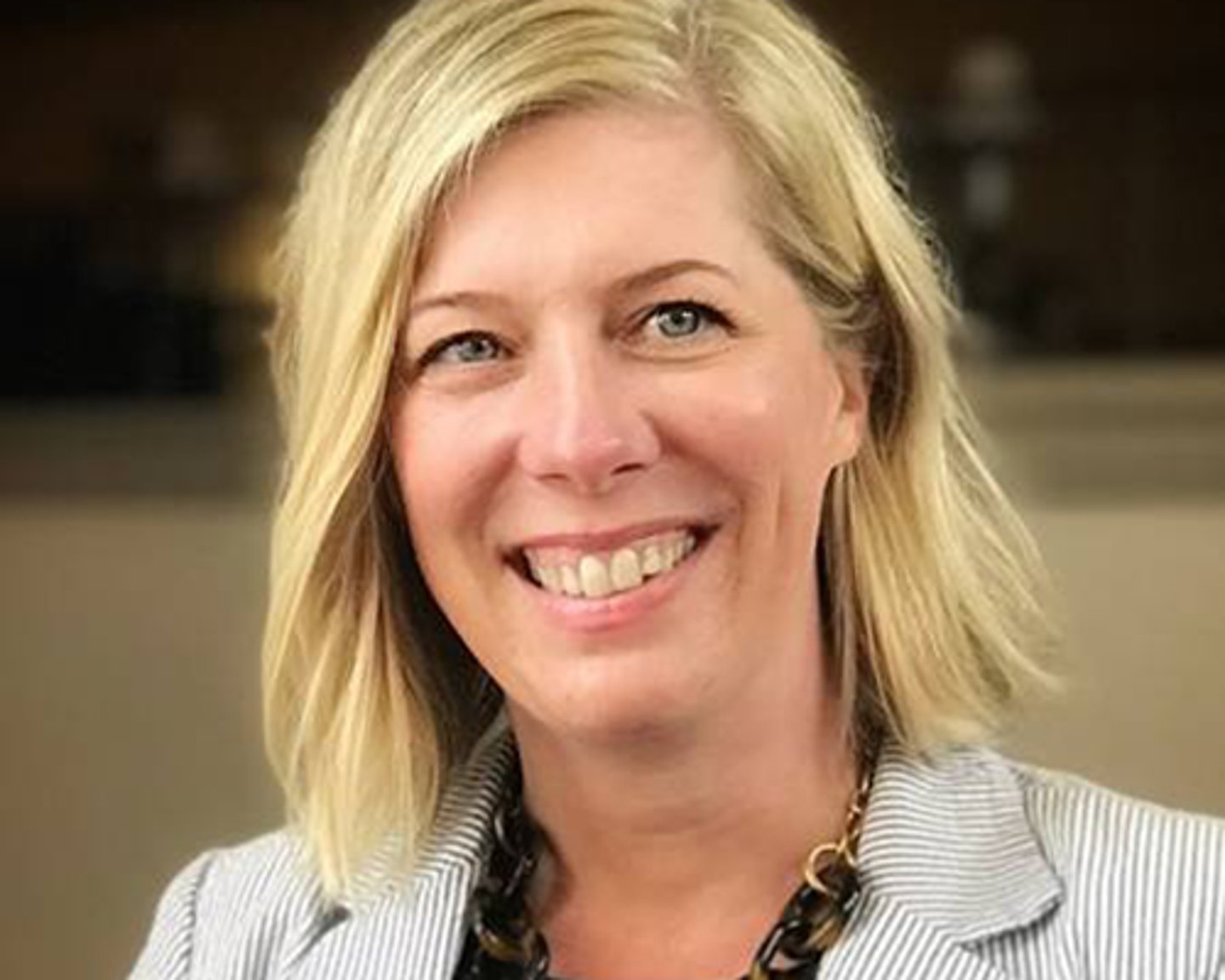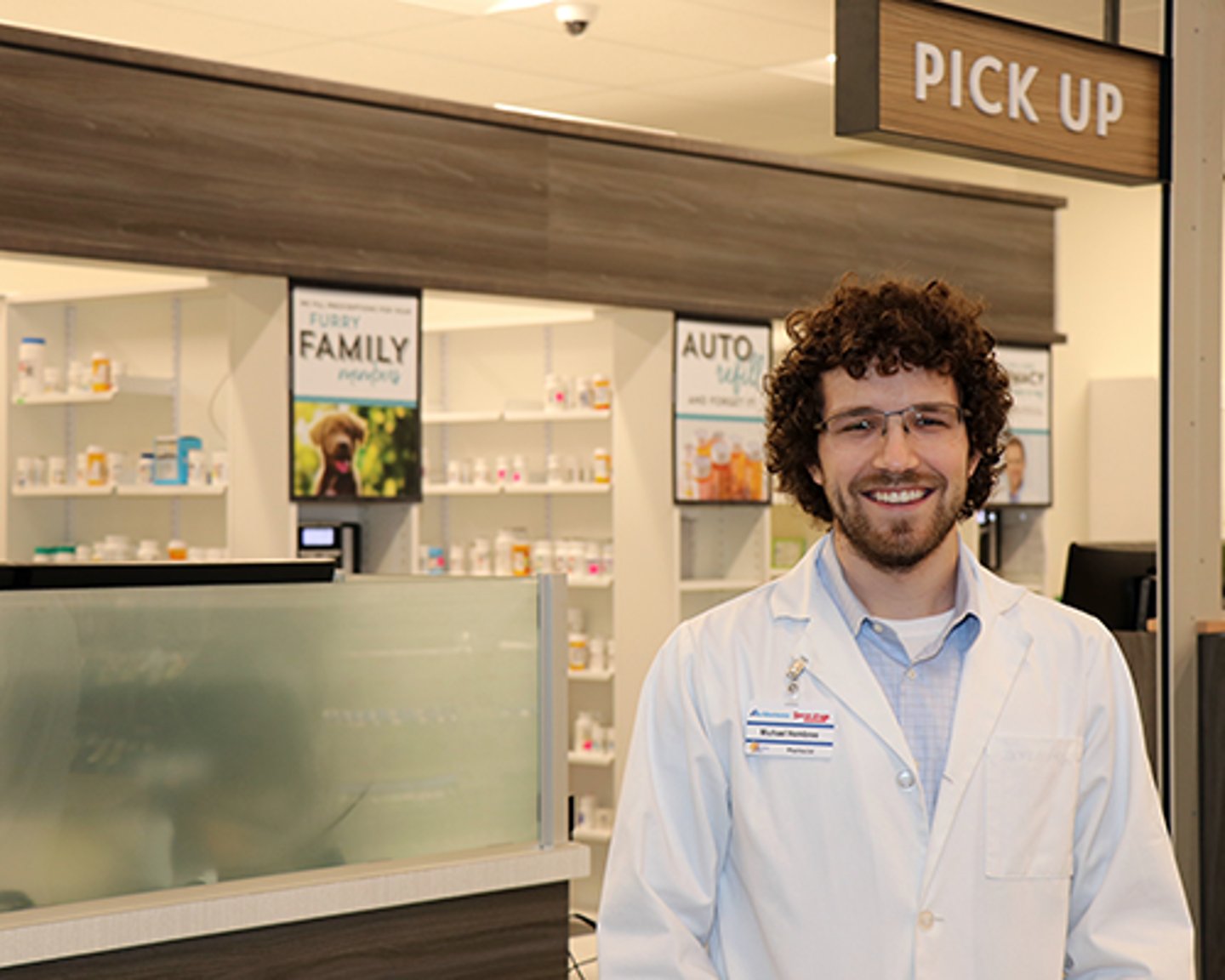Climbing the ladder: How pharmacists can rise in the ranks
Many pharmacy school students look forward to the day that they can trade their textbooks for a position in pharmacy that will be lucrative, personally fulfilling, and one in which they can hang their white coat for many years. In many cases, these positions turn into roles of increasing seniority, particularly at retail chains inclined to promote its pharmacy executives from within the organization.
What does it take for pharmacists today to transition from dreams to securing a senior-level job?
Pharmacy executives who have climbed the corporate ladder at major retail pharmacy chains — and who have helped usher some of their colleagues to high-level positions — agree that myriad factors influence pharmacists’ ascent in retail pharmacy. The corporate culture, the availability of mentoring and leadership training, specific personality traits, and expertise in a multitude of areas all come into play.
Top brass in retail pharmacy also are quick to point out that aspiring leaders need to have a keen understanding of how the rapid changes in today’s healthcare environment are impacting the practice of pharmacy.
Billy Chow, vice president of pharmacy at Seattle-based Bartell Drugs, said that many pharmacists pigeonhole themselves to focus solely on dispensing medications, without thinking about what health care looks like today and where it will be in the future.
“A lot of people who graduated from pharmacy school used to think their job was just to put pills in a bottle or work in a hospital setting,” Chow said. “They never really thought about the outcomes, quality metrics or quality of care, and to perceive themselves as a partner in the whole continuum for patient care in an outpatient setting.”
Lemrey “Al” Carter, who joined the National Association of Boards of Pharmacy as executive director and secretary in May and who previously was Walgreens divisional vice president of pharmacy operations and professional affairs, mirrored Chow’s thoughts about the importance of leaders understanding the transformation in health care.
Pointing out that today’s environment for chain and independent pharmacists has changed over the last five years, Carter cited the example of Walgreens’ efforts to create pharmacies of the future, which entails transforming its pharmacies and pharmacists’ focus from dispensing medications to delivering essential healthcare services to patients.
“If you look at the way that the healthcare structure is positioned, our pharmacists are in the heart and center of most of these patient populations,” Carter said. “They have to be willing to excel, be ready to advance, be passionate and dedicated, and they really have to be an advocate for the advancement of pharmacy and what pharmacists can do.”
The Right Stuff
In addition to understanding how pharmacy practice is changing, future leaders must have flexibility and the ability to assume a wide range of responsibilities, Carter said. Indeed, his ascent through the ranks at Walgreens also exemplifies the importance of assuming multiple roles and responsibilities.
Carter worked at Walgreens during his four years of pharmacy school. He was selected to participate in a 12-week corporate internship program. When he went home to Mississippi to work as a pharmacist, Hurricane Katrina hit. Despite relocating to Dallas as a result of the hurricane, he remained open to returning to Mississippi.
“Because I was flexible, Walgreens asked me to come back to be pharmacy manager at the only pharmacy in Long Beach, Miss., that survived Hurricane Katrina,” Carter said.
After serving in this role for one year, Carter moved to Chicago, where he developed a pharmacy campus recruiting program. After one year, he took on a senior healthcare recruiter role. Soon after, he moved into pharmacy regulatory affairs and also has overseen pharmacy operations, compliance and market access.
With Hy-Vee’s Kristin Williams, the West Des Moines, Iowa-based retailer’s senior vice president and chief health officer, her rise opens a window on the rewards for pharmacists who are flexible.
Williams began her career with Hy-Vee in 1993 at their Council Bluffs Drugstore as a part-time checker/stocker and later served as a pharmacy intern and as a staff pharmacist. After a two-year stint at Kroger and Safeway in Colorado, she returned to Hy-Vee. When a position close to home wasn’t available, she drove an hour to another location. Williams became a pharmacy manager and then a supervisor, covering Nebraska, South Dakota and half of Iowa for six years. Williams also served as director of pharmacy education and training and created the pharmacy’s central-fill operation. Two years later, she became vice president of health and wellness, and in 2016, she was promoted to chief health officer.
Williams said that constantly striving to improve and being proactive about potential opportunities are critical skills for pharmacists who want to grow their responsibilities.
“You have to say yes before you say no. Sometimes you get a little too comfortable and you don’t want to leap. You need to continue to push yourself,” Williams said. “The biggest piece of the puzzle is you have to be a self-starter. You have to be the one to take the first step, even if that step is scary, and you have to keep moving forward. You are going to go down the wrong direction sometimes, and you’re going to have to redirect, and it’s how quickly you can overcome a misstep.”
Dan Salemi, Albertsons’ group vice president of pharmacy services, concurred with Williams on the need for pharmacists to take the initiative to advance their own career goals.
“Pharmacists need great communication skills, the ability to solve problems, and a solid foundation in operational knowledge to advance,” Salemi said. “Most of our pharmacy associates advance because they ask to learn and do more. They speak up and let their managers know they are interested in career advancement. They also are open to all opportunities, including relocating to any of our locations in the 34 states we operate in.”
Salemi knows a thing or two about advancing. His 40-year pharmacy career has been characterized by assuming numerous responsibilities, including managed care contracting, pharmacy systems, pharmacy procurement, specialty pharmacy and pharmacy compliance for the more than 1,700 Albertsons community pharmacies. This is due in part, he said, to Albertsons’ corporate pharmacy culture, which seeks to expose employees to different areas of pharmacy management. “The most successful people in our business have had multiple roles and responsibilities,” he said.
Institutional Resources
Professional development at many chains no longer is something that employees need to tackle on their own. Several offer formal leadership training programs that can help people build skills that can help reach their goals.
Jennifer Zilka, AmerisourceBergen’s group vice president of Good Neighbor Pharmacy, said that AmerisourceBergen offers courses that pharmacists on a corporate leadership track can attend in person. Zilka, who helped build out Good Neighbor Pharmacy’s business coaching program, said that the courses enable future leaders to gain experience pitching a business plan to an executive team.
Beyond AmerisourceBergen headquarters, the company also has created employee development courses for its Good Neighbor franchisee pharmacists.
“It seems selfish, but there needs to be a willingness and an appetite to invest in yourself,” Zilka said. “It’s crucial to take that time and to think about your future and what things you want to be doing, and learning from others who have been successful. It’s an amazing opportunity to move forward and reprioritize. It’s important that you’re stepping out of your day to day in order to grow your role.”
Hy-Vee’s Williams said that showing a desire to continually learn and grow can aid in advancement. “The constant curiosity to learn more is one of the traits you need. Otherwise, you’ll get stagnant and get left behind,” she said. Hy-Vee offers Dale Carnegie leadership training for its franchisee pharmacists, and encourages corporate and store pharmacists to become active with the Iowan Pharmacy Association and the Midwest Pharmacy Expo, which provides the opportunity for pharmacists to interact and be lifelong learners.
At Albertsons, the company’s development programs begin with a week-long live classroom training for new hires to gain confidence. This program also offers additional training opportunities focused on operations and management skills, which introduce in-depth and advanced topics related to running an efficient and profitable pharmacy, Salemi said.
Albertsons University is the company’s premier leadership training program. It selects up-and-coming leaders from all parts of its company to work together on a group project that improves some aspect of the company’s business. They participate in various classroom exercises to progress leadership skills and present their developed proposal to Albertsons’ chief leadership. “One of the biggest strengths of the program is the networking that happens within these groups,” Salemi said.
Additionally, Albertsons has several sources and training programs, depending on pharmacist-specific goals and career paths. For example, the company recently launched pain management training and mental health training.
Walgreens offers programs that provide pharmacists with special assignments that allow leaders to create products and solutions for different challenges and learn from leaders at the company. “They work collaboratively with a group of individuals that may be pharmacists or not,” Carter said. “To work in collaboration with others outside of your career healthcare space is key.”
Building Skills
Aside from taking advantage of opportunities to learn and develop skills, being adept at the business aspects of pharmacy is instrumental in rising through the ranks.
Chow said that Bartell Drugs helps pharmacists gain business acumen. “We walk pharmacists through what a P&L looks like, what their expense lines look like, and explain why procurement is so important,” Chow said. “You’re getting taken to task on reimbursement rates, so you need to know what you can do to offset that.”
AmerisourceBergen is employing its business coaches to help Good Neighbor Pharmacy owners gain business skills. “The business side of owning a pharmacy isn’t something pharmacists necessarily walk out of school with a good understanding of,” Zilka said.
Pharmacists also need to possess certain personality traits that can propel their career and help them face obstacles.
“Not everything is going to pay off. You may say, ‘Ah, that wasn’t the best move in my career.’ You have to continue to believe that persistence and perseverance are going to pay off,” Chow said. He also cautioned, “With greater responsibility comes some trade-offs. A lot of people talk about balance, but it’s really about harmony. Everyone says, ‘When I leave my office, I should leave everything at the office and then go home.’ I don’t know that that always is fully achievable. You really have to know that at a certain time, you have to commit extra time at work and accept that those are the terms of engagement.”
Nancy Lyons, McKesson’s vice president and Health Mart’s chief pharmacy officer, pointed out that being humble and asking for assistance are beneficial in attaining senior level roles. In her 28-year pharmacy career, Lyons’ roles have included overseeing clinical programs for a chain, working in specialty pharmacy, a stint at Roche Diabetes, and development of continuing education for Drug Store News. Her initial position at McKesson was in operational development, and she assumed her current role after two years at the company. Knowing when to seek out others as a resource was critical to her growth, she said.
“I’m never the smartest person in the room, but I work hard to find the people and resources needed for a successful project,” Lyons said. “It’s not efficient or sometimes even possible to try to know everything or be able to do everything needed to bring the projects through. Being comfortable knowing your limits and asking for that help with confidence is key.”
There also is a consensus among current pharmacy leaders that being passionate about what you are involved in is crucial for success.
“Our pharmacy managers go out and figure out how they can make a difference in the community,” Hy-Vee’s Williams said. “The biggest skill you have to have now in any job or industry is passion to do it because if you don’t have that passion, it shines through in your performance. Your heart has to be into it.”
Lyons agreed. “If a pharmacist can find their passion and get to the top of the game in that area, the opportunity to turn that into a career is a lot greater,” she said.
Mentorship Matters
Pharmacy industry leaders also contend that finding a mentor at any stage of one’s career is helpful in navigating the way to the top.
New leaders at Walgreens usually have a peer mentor throughout their career, and the company will encourage team members to seek out members outside their teams.
When Carter was a pharmacy intern, he met someone at the support center “to lean on. Through the years, he has mentored me in many ways and helped me navigate the corporate culture and pharmacy to be successful and be the leader I am today,” he said.
Williams reflected on the impact of her mentor, when she began working at a Hy-Vee’s Drug Town when she was 15 years old: “Two awesome pharmacists showed me what patient interaction and community involvement was all about.”
Having mentors also aided Lyons’ career. “I have worked with a handful of some of the most inspiring pharmacists and mentors in the profession, many of whom I still am in contact with today. I owe each of them so much for the time they took to include me on a project, or to point out something that I could have done better, or to give me an opportunity to go try something,” she said, noting that she is mentoring a young female pharmacist who she believes has great leadership potential.
AmerisourceBergen has developed its women in pharmacy initiative to help women excel on their career path in pharmacy ownership.
“We partner female owners in our network with other women pharmacists who aspire to own their own store. This helps up-and-
comers see the challenges and opportunities in owning a community pharmacy,” Zilka said. “Our female owners help new owners get established with such things as the loan process and ensure they have all the advantages needed to be successful. That mentor is someone they can bounce ideas off of and talk to about work-life balance.”
Albertsons offers formal and informal mentorship programs, such as the Pharmacist Opportunity Program that prepares high-talent pharmacists identified by their division pharmacy managers for future pharmacy manager positions. Managers selected for this program meet quarterly to focus on topics, which may include profit and loss statement review, inventory management, or coaching.
Albertsons also offers Virtual Coaching, a training for pharmacy managers to increase their knowledge base by pairing them with an experienced pharmacy manager who serves as an ongoing resource and mentor. This program spans a six-month time period with monthly sessions that offer an introduction to the role of the pharmacy manager, operations essentials, inventory and personnel management, physical inventory, patient care services, and customer service.
Many of Albertsons’ corporate associates also have informal mentoring relationships, and some associates may have more than one mentor. “The responsibilities vary for each role. Some pharmacists might find they are more involved in financial planning or negotiations, while others start assuming compliance or project management responsibilities,” Salemi said. “Regardless of what the responsibilities are, we entrust mentors and established associates to help guide the pharmacists as they rise in the ranks. When they succeed, we succeed.”
Plenty of Options
When it comes to the types of leadership opportunities available in retail pharmacy, there are many traditional roles available, as well as some exciting new areas pharmacists can pursue.
Hy-Vee’s leadership positions include traditional and newly created roles. For example, there is a pharmacist overseeing specialty pharmacy operations in 22 locations, a pharmacist leading its retail pharmacy operations in 264 locations, a pharmacist leading central fill, pharmacy supervisors that lead training and education, and a pharmacist who oversees getting clinics in its stores.
At Bartell Drugs, the company’s senior manager for technology and systems, who started as a pharmacy manager, was named call center manager, and recently was promoted to senior manager of pharmacy systems and the call center. Another pharmacist was recently promoted to director of procurement and third-party payers.
Chow insisted that in the future, pharmacist leaders will need the ability to create strategies for pharmacy’s success. “That forces you to be more creative in how you develop or devise strategies for your business plan and for your organization,” he said. “Your success is going to be dependent on how well you can adapt to this new environment.”











